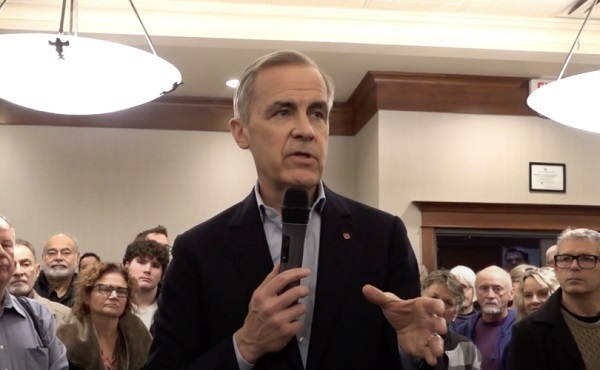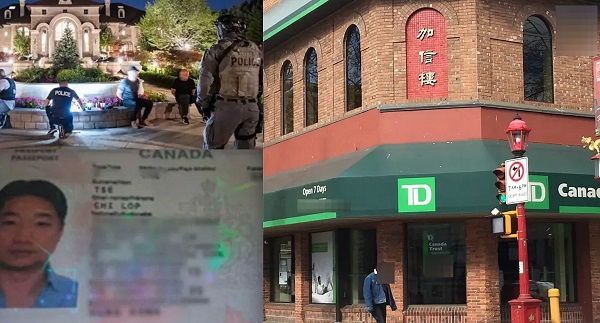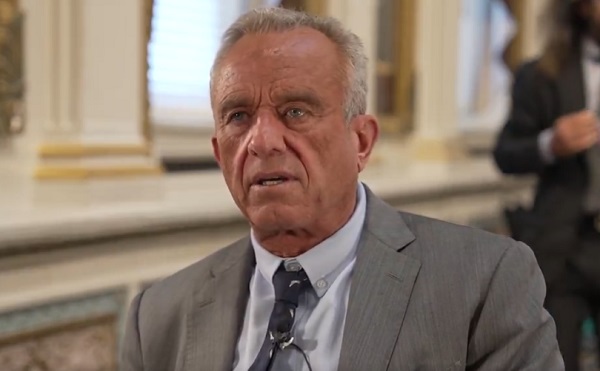MAiD
Over 40% of people euthanized in Ontario lived in poorest parts of the province: government data

From LifeSiteNews
Statistics from the Ontario Coroner’s Medical Assistance in Dying Death Review Committee show that citizens living in the poorest areas of the province are significantly overrepresented in euthanasia death figures.
Statistics from the Ontario Coroner’s Medical Assistance in Dying (MAiD) Death Review Committee show that citizens living in impoverished areas are killed by euthanasia at a disproportionate rate.
According to the report, over 40 percent of those euthanized in Ontario live in the poorest parts of the province despite the fact that other reports say only 20 percent of the population lives in these regions, suggesting Ontario’s poorest are more likely to opt for euthanasia than the financially secure.
The report divides the cases into Track 1 euthanasia deaths (euthanasia given to those whose death is reasonably foreseeable) and Track 2 deaths (euthanasia given to those whose death is not reasonably foreseeable). 41% of Track 1 deaths and 48% of Track 2 deaths were of people living in Ontario’s poorest neighborhoods.
However, when accounting for “age and labour-force participation” as “measures of disadvantage,” the Death Review Committee report found that 57% of Track 2 requests came from the poorest in society, while 42% of Track 1 requests were from the same sector.
Interestingly, or perhaps alarmingly, this statistic is not found in other counties, as data from the Netherlands and Oregon found “death under the (Oregon Death with Dignity Act) was associated with having health insurance and with high educational status, both indirect indicators of affluence.”
A culture of death and eugenics
However, in Canada, poverty has become a driving factor among those who end their lives via MAiD. Indeed, the Death Review Committee report is only the latest document to confirm the growing number of Canadians choosing to end their lives, at least in part, because they are poor.
First introduced in 2016, MAiD was initially only available to those who were terminally ill. However, in 2021, Prime Minister Justin Trudeau’s government expanded the deadly practice to be available to those who are not at risk of death but who suffer from chronic illness.
Now, Trudeau’s euthanasia regime has apparently created a culture of death and eugenics in Canada as poor or suffering Canadians increasingly feel that their lives are worthless, and they are a burden to society.
In one case, a Nova Scotia grandmother revealed that doctors repeatedly offered her euthanasia while she underwent cancer treatment, making her feel as though she was “better off dead.”
“I felt like a problem that needed to be [gotten] rid of instead of a patient in need of treatment,” she said. “I don’t want to be asked if I want to die.”
Similarly, in May, LifeSiteNews reported on a Canadian man who felt “completely traumatized” and violated that he was offered MAiD “multiple times” instead of getting the proper care he needed while in the hospital.
Additionally, last month, internal documents found that poverty and loneliness are two popular reasons Canadians are choosing euthanasia, which has left doctors feeling uneasy about the morality of the deadly practice.
Healthcare wait times have ballooned nationwide under the Trudeau government, with the average wait hitting an all-time high of 27.7 weeks.
While access to real care continues to be limited, Trudeau and his government have instead worked to expand MAiD thirteen-fold since it was legalized, making it the fastest growing euthanasia program in the world.
The most recent reports show that MAiD is the sixth highest cause of death in Canada. However, it was not listed as such in Statistics Canada’s top 10 leading causes of death from 2019 to 2022.
When asked why MAiD was left off the list, the agency said that it records the illnesses that led Canadians to choose to end their lives via euthanasia, not the actual cause of death, as the primary cause of death.
According to Health Canada, in 2022, 13,241 Canadians died by MAiD lethal injections. This accounts for 4.1 percent of all deaths in the country for that year, a 31.2 percent increase from 2021.
Carbon Tax
Mark Carney has history of supporting CBDCs, endorsed Freedom Convoy crackdown

From LifeSiteNews
Carney also said last week that he is willing to use all government powers, including “emergency powers,” to enforce his energy plan if elected prime minister.
World Economic Forum-linked Liberal Party leadership frontrunner Mark Carney has a history of supporting central bank digital currencies, and in 2022 supported “choking off the money” donated to the Freedom Convoy.
In his 2021 book Value(s), Carney said that the “future of money” is a “central bank stablecoin, known as a central bank digital currency or CBDC.”
He noted in his book that such a currency would be similar to current cryptocurrencies such as Bitcoin, but without the private nature afforded to it by its decentralization.
“It is simply untenable in democracies that the core of the monetary system could be based on forms of electronic private money whose creators control large blocks of the currency, like Bitcoin,” he wrote. “Cryptocurrencies are not the future of money.”
Carney noted that a CBDC, if “properly designed,” could serve “all the functions to which private cryptocurrencies and stablecoins aspire while addressing the fundamental legal and governance issues that will, in time, undermine those alternatives.”
Expanding on his worldview in relation to CBDCs, Carney suggested that “fear” can be taken advantage of to shape the future of money.
“With fear on the march, people were willing to surrender to Hobbes’ ‘Leviathan’ such basic rights as the freedom to leave their homes,” he wrote. “And so it is with money. People will support the delegation to independent central banks of the tough decisions that are necessary to maintain the value of money provided the authorities deliver monetary and financial stability.”
Some Canadians are alarmed by the prospect of CBDCs, a fear that only worsened after the Liberals under Prime Minister Justin Trudeau froze hundreds of bank accounts it deemed were importantly linked to the 2022 Freedom Convoy.
During the Freedom Convoy, Carney wrote in an op-ed for the Globe and Mail, “Those who are still helping to extend this occupation must be identified and punished to the full force of the law,” adding that “Drawing the line means choking off the money that financed this occupation.”
Carney is a former head of the Bank of Canada and Bank of England. His ties to globalist groups have led to Conservative Party leader Pierre Poilievre calling him the World Economic Forum’s “golden boy.”
In addition to his comments on CBDCs, Carney has a history of promoting anti-life and anti-family agendas, including abortion and LGBT-related efforts. He has also previously endorsed the carbon tax and even criticized Trudeau when the tax was exempted from home heating oil to reduce costs for some Canadians.
Carney also said last week that he is willing to use all government powers, including “emergency powers,” to enforce his energy plan if elected prime minister.
The Liberal Party of Canada will choose its next leader, who will automatically become prime minister, on March 9, after Prime Minister Justin Trudeau announced that he plans to step down as Liberal Party leader once a new leader has been chosen.
In contrast to Carney, Poilievre has promised that if he is elected prime minister, he would stop any implementation of a “digital currency” or a compulsory “digital ID” system.
When it comes to a digital Canadian dollar, the Bank of Canada found that Canadians are very wary of a government-backed digital currency, concluding that a “significant number” of citizens would resist the implementation of such a system.
MAiD
Nearly half of non-terminally ill Canadians who choose euthanasia say they are lonely

From LifeSiteNews
Of the 662 people who were not in danger of death but succumbed to medical assistance in dying last year, 47.1 percent cited as reasons for wanting to die ‘isolation or loneliness.’
Official government data shows that about half of Canadians who are not terminally ill yet wanted to end their lives via state-sanctioned assisted suicide did so last year because they said they were lonely.
According to data published by Health Canada on December 11 in its fifth annual report on medical assistance in dying (MAID), 15,342 people were approved for and died by euthanasia in 2023.
A total of 14,721 of these deaths were in cases where illness or disability were likely down the road or considered “reasonably foreseeable.” These are called Track 1 MAiD deaths.
However, 662 deaths were people who were not dying. Of these Track 2 deaths, 47.1 percent cited as reasons for wanting to die “isolation or loneliness.” By comparison, about 21.1 percent of Track 1 deaths reported the same feelings for wanting to die by doctor-led suicide.
The report stated that “social isolation and loneliness are shown to have a serious impact on physical and mental health, quality of life, and longevity.”
Of the Track 2 deaths, 35.7 percent lived alone, compared with 30.2 percent of Track 1 deaths. Of Track 1 deaths, the average age was 77.7 years. The average age of Track 2 deaths was 75.
Of note is that this year’s Health Canada report on MAiD is the first to include so-called “verbal” requests from individuals as official. Previously, those who wanted to die via assisted suicide had to submit a form to Health Canada in order to be officially recorded as a request to die by suicide.
Under Prime Minister Justin Trudeau, whose Liberal government legalized MAiD in 2016, the deadly program has continued to relax its rules on who is eligible for death.
As reported by LifeSiteNews, 1 in 20 Canadian deaths in 2023 came from assisted suicide.
Instances of people being offered MAiD as a solution to their health issues have become commonplace in Canada, as reported by LifeSiteNews.
Last week, LifeSiteNews reported how a senior Canadian couple said that a hospice care center presented euthanasia to one of them as an option because they could not afford increased care costs on their fixed income.
Canadian pro-life leaders have criticized the Trudeau government’s continued push for expanding MAiD.
Indeed, most Canadians fear the nation’s euthanasia regime unfairly targets those who are financially and socially vulnerable while still supporting the immoral practice in general.
In 2021, the program expanded from killing only terminally ill patients to allowing the chronically ill to qualify. Since then, the government has sought to include those suffering solely from mental illness.
The number of Canadians killed by lethal injection under the nation’s MAiD program since 2016 stands at close to 65,000, with an estimated 16,000 deaths in 2023 alone. Many fear that because the official statistics are manipulated the number may be even higher.
Canada had approximately 15,280 euthanasia deaths in 2023.
-

 Uncategorized10 hours ago
Uncategorized10 hours agoPoilievre on 2025 Election Interference – Carney sill hasn’t fired Liberal MP in Chinese election interference scandal
-

 Business20 hours ago
Business20 hours agoCuba has lost 24% of it’s population to emigration in the last 4 years
-

 Business2 days ago
Business2 days agoLabor Department cancels “America Last” spending spree spanning five continents
-

 2025 Federal Election2 days ago
2025 Federal Election2 days agoCanadian Banks Tied to Chinese Fentanyl Laundering Risk U.S. Treasury Sanctions After Cartel Terror Designation
-

 Health2 days ago
Health2 days agoRFK Jr. says ‘everything is going to change’ with CDC vaccine policy in Michael Knowles interview
-

 Automotive2 days ago
Automotive2 days agoTrump warns U.S. automakers: Do not raise prices in response to tariffs
-

 2025 Federal Election2 days ago
2025 Federal Election2 days agoNext federal government should recognize Alberta’s important role in the federation
-

 Business1 day ago
Business1 day agoTariff-driven increase of U.S. manufacturing investment would face dearth of workers






